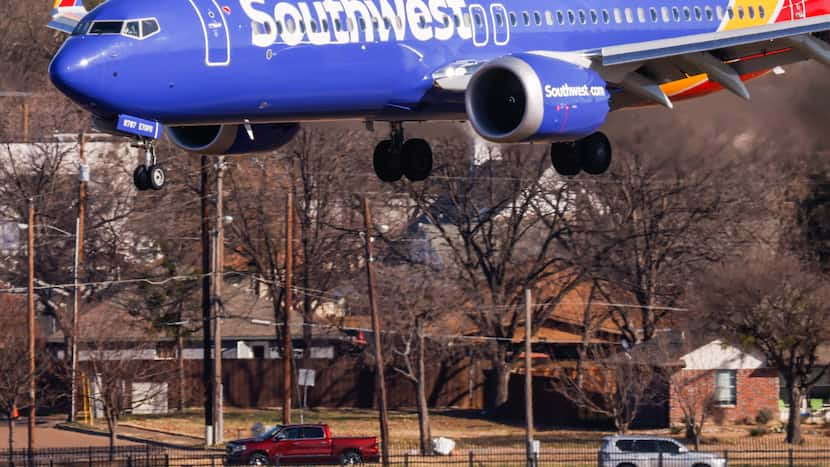Southwest Airlines is lowering its revenue expectations this quarter, just as an activist investor has placed pressure on the carrier to do a complete workup for its shareholders.
In a regulatory filing Wednesday, Southwest reported it now expects revenue per available seat mile to fall as much as 4.5% in the second quarter on an annual basis. It previously estimated a decline of no more than 3.5%. Revenue per available seat mile is a measure used by the airlines on total revenue from each seat flown 1 mile, regardless if it is empty or full.
The Dallas-based airline said this decline in expectations “was driven primarily by complexities in adapting its revenue management to current booking patterns in this dynamic environment,” in its latest filing.
Earlier this month, activist investor Elliott Investment Management sent a letter to Southwest’s board of directors calling out the leadership of CEO Bob Jordan and executive chairman Gary Kelly for their “stubborn unwillingness” to evolve the airline’s strategy, while strong-arming the public and shareholders with their 11% stake and nearly $2 billion investment in the company. Jordan told a group of reporters shortly after that he will not resign despite the pressure the company faces from the stakeholder.
Elliott put out its own statement on the matter on behalf of John Pike, partner at Elliott, and Bobby Xu, portfolio manager at Elliott. The statement said the filing marked the eighth guidance reduction at Southwest in the last 18 months for the key measure of financial efficiency.
“Southwest’s industry-trailing revenue performance is clearly continuing along the same disappointing trend line, despite management’s repeated promises for improvement and today’s empty statement that the company is focusing on ‘delivering operational excellence,’” the letter read.
The letter ended by stating that Elliott is “committed to delivering the leadership changes that the company requires.” Southwest responded previously, reaffirming faith in leadership and planning for changes to its finances.
Activist investors are firms that put money into underperforming companies and try to improve performance for profit. These investors buy a stake and run campaigns to persuade shareholders and management to implement changes. It’s a large, but not necessarily controlling stake. Sometimes, these changes are for the better and can improve a company. Other times, shareholders may not agree with what an activist investor proposes.
Elliott wants Southwest to take into account three recommendations: Enhance the board, upgrade leadership and undertake a business review.
Southwest wasn’t the only airline that adjusted expectations for this quarter based on flying demand.
In May, Fort Worth-based American Airlines adjusted its anticipated unit revenues to fall as much as 6% in the second quarter and shrunk its adjusted earnings estimate to a projected range of $1 to $1.15 a share after previously expecting it to be $1.15 to $1.45 a share. American CEO Robert Isom attributed the change to a “softer domestic revenue environment.”
That change also came with the announcement that American’s chief commercial officer Vasu Raja would depart in June. American had been seeing “softness in costs and bookings,” relative to the airline’s expectations. The company, according to Isom, believed it was in part due to the changes that it made to its sales and distribution strategy.
Melius Research analysts pointed to both Southwest and American’s lowered expectations for the quarter but added that there has been debate on whether the network maturation and a new revenue management system could offset Southwest’s promotional fare activity.
“Any way you dice it, Southwest continues to struggle in the current environment with more moderate leisure demand after years of strength,” Melius Research analysts wrote. “The Southwest-specific initiatives have yet to take hold, and investors will likely further question the validity of them now.”






